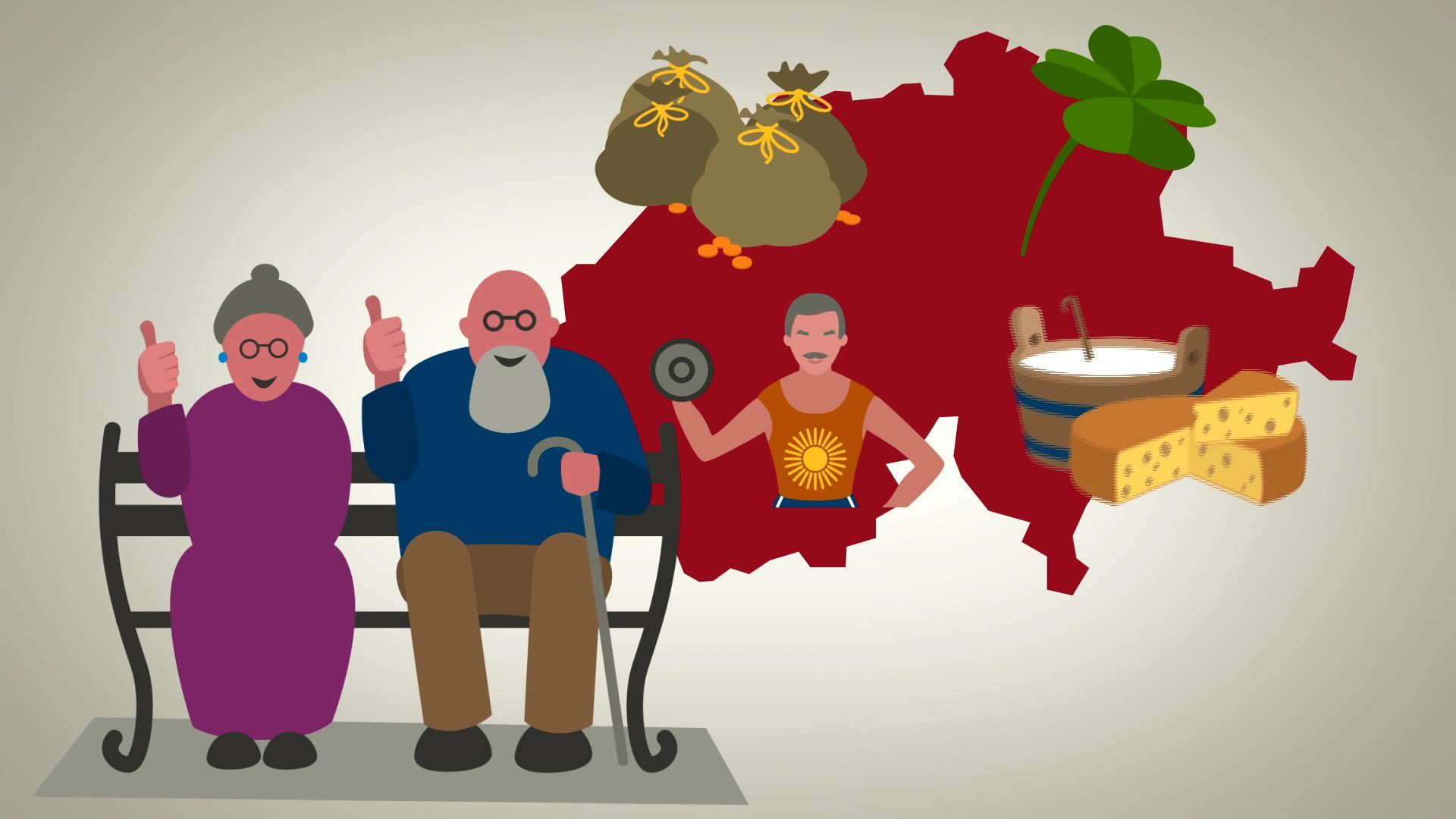
Ticino has second-highest life expectancy in Europe

With an average life expectancy of 85.2 years, the southern Swiss canton of Ticino is the European region with the second-highest life expectancy. Elderly residents there are outlived only by people in Madrid, who can expect to make it to 85.5, according to the EU statistical office Eurostat.
Overall, among men, Italians have the best prospects for a long life. The autonomous province of Trento in northern Italy leads at 82.7 years, even ahead of Madrid. Among women, on the other hand, Spanish women have the longest life span in Europe at 88.1 years on average in Madrid and 87.3 in Navarre.
In Switzerland, the Lake Geneva region was the “most durable” after Ticino with a life expectancy of 84.2 years, followed by Zurich and Central Switzerland both at 84 years and northwestern Switzerland at 83.9 years. In Switzerland as a whole, people born in 2019 could expect to live for 83.8 years.
The EU average in 2018 was 81. Women had an average of 5.5 years more time on earth than men: 83.7 years compared with 78.2 years.

More
Grey pride
Long retirement
When it came to a long life as a pensioner, Switzerland also did well, with a resident of Ticino who had survived to the age of 65 able to expect to live, on average, a further 22.5 years. The figure was 22 years in the Lake Geneva region.
Ticino was outdone, however, by Madrid, Ile-de-France, parts of London and Corsica.
Eurostat calculated consistently poor values for Eastern Europe: while Madrilenians had an average of 23.2 years to live when they retired at the age of 65, the average for residents in Eastern Europe (retiring at the same age) was only 17-18 years – with the exception of Greece, which achieved Central European values. The Bulgarian regions of Severozapaden and Severen Tsentralen came last, where pensioners were given an average of only 15.7 years.
Why do the Swiss live so long? Different studies point to some of the quite surprising reasons: wealth, a sense of well-being and diet – a love of dairy products including cheese.

More
Why the Swiss live longer

In compliance with the JTI standards
More: SWI swissinfo.ch certified by the Journalism Trust Initiative

























You can find an overview of ongoing debates with our journalists here . Please join us!
If you want to start a conversation about a topic raised in this article or want to report factual errors, email us at english@swissinfo.ch.